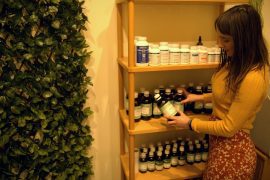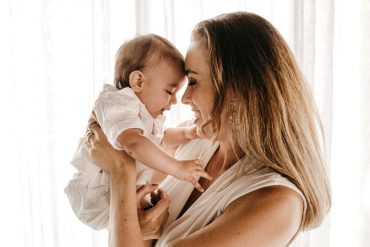By Hannah Schenker
Thousands of New Zealanders do not get enough iron, with many not even aware they are deficient. If you are pregnant, it is super important to maintain healthy iron levels as your body’s reserves are drawn on heavily in the creation of your new child. Read on to discover the signs of low iron, find out how you can increase your consumption of iron-rich foods and when you should start getting concerned about supplementation.
According to the website ironweek, in their last national survey they reported that 1 in 14 adult women over the age of 15 years had iron deficiency, and more than a third of teenage girls ageed 15-18 do not achieve their daily iron requirements. Even more concerning – 8 out of 10 toddlers do not meet the daily iron intake they need. For the young ones this can impact brain development and for an adult, well, that’s a lot of tired people.
Iron is a mineral that helps carry oxygen to the brain and muscles, helping us to feel vital and energised and able to fight off infections.
People who have high iron needs:
- Infants, children and teenagers because they are growing and developing quickly
- Pregnant women for increased blood levels and to build baby’s iron stores
- Girls and women who have periods, due to that monthly blood loss
- Athletes and very active people
- People on restricted or fad diets
Symptoms of low iron:
- Tired, lethargic, no get-up-and-go
- Irritable and grumpy
- Sensitive to the cold
- Get frequent infections, pick up all the bugs
- Easily fatigued
- Struggle with concentration
- Shortness of breath – especially going uphill
- Muscle aches and cramps
You might also like to read: MAINTAINING HEALTHY IRON LEVELS DURING PREGNANCY
Recommended daily dietary intake:
- Infants 0-6 months: 0.2mg
- Infants 7-12 months: 11mg
- Children 1-13 years: 8-10mg
- Boys 14-18 years: 11mg
- Girls 14-18 years: 15mg
- Women 19-50 years: 18mg
- Pregnant Women: 27mg
- Breastfeeding Women: 9-10mg
- Women over 50 years: 8mg
- Men over 19 years: 8mg
The only way to tell for sure is to get your blood tested – there are a few different ways they can test your iron levels.
Before you rush out to get iron supplements, which are not so easily absorbed, first check your diet and see where you can increase the following:











